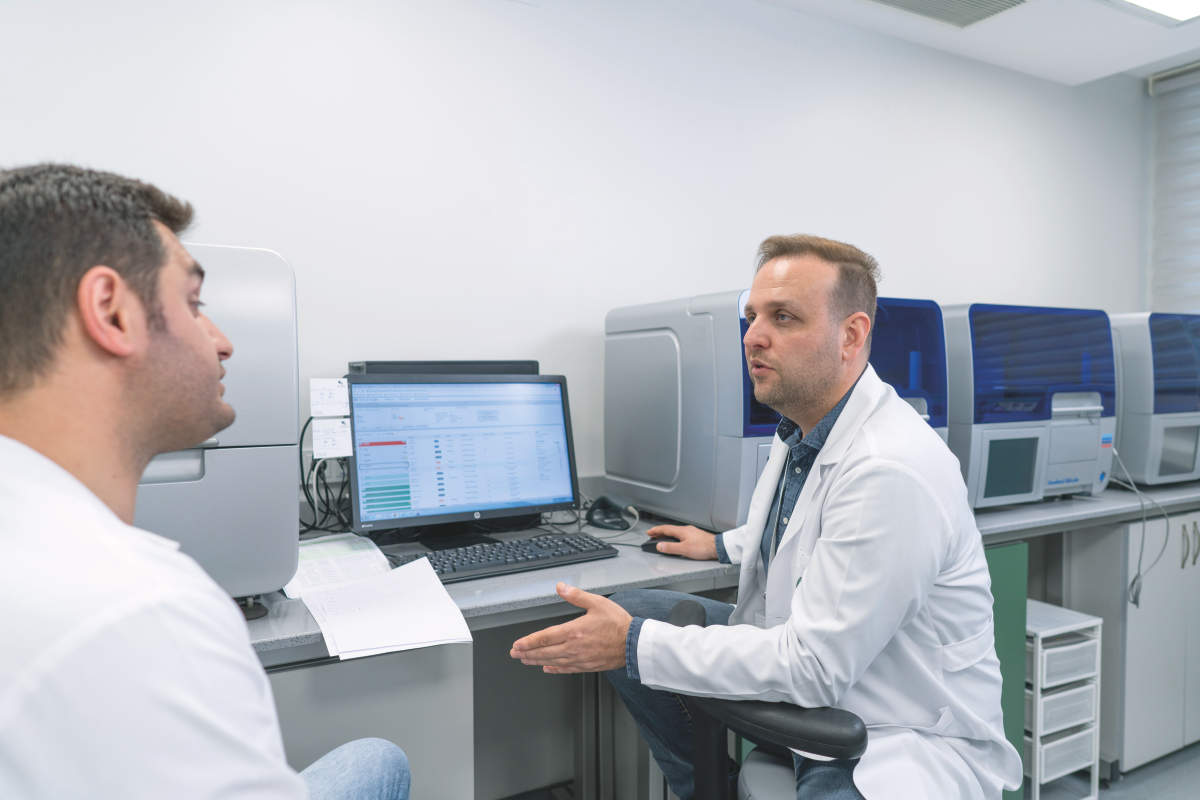


















It takes an average of 5-7 years for a rare disease diagnosis.
What if answers could be delivered within days?
At QIAGEN Digital Insights, we are advancing and accelerating the diagnosis of rare and inherited diseases. For 25 years, we have been building the world’s largest, manually curated knowledge base of genomic data. Combined with our sophisticated bioinformatics solutions and standalone genomic databases, the QIAGEN Knowledge Base ensures clinicians, researchers, and pharmaceutical companies have access to the technology and data needed to end the diagnostic odyssey of rare diseases one gene at a time.
When lives depend on getting it right, you can only trust QIAGEN
When it comes to diagnosing rare diseases, confidence is built on accuracy, trust, and experience. The QIAGEN Knowledge Base is the industry's largest expert-curated database of genomic and clinical evidence, combining unmatched depth with real-world expertise to provide life-saving answers. Built over 25 years of manual curation, the QIAGEN Knowledge Base is used by some of the most prestigious healthcare and research institutions in the world, including multiple national and multi-national consortiums, to ensure speed and confidence in diagnosing even the most challenging cases.
QIAGEN has partnered with Genomics England to support the delivery of the Generation Study, a first-of-its-kind initiative aiming to sequence the genomes of 100,000 newborns in England to screen for over 200 selected conditions, enabling earlier diagnosis and treatment of rare conditions. Through its Clinical Knowledge Base, QIAGEN will be the only company to provide clinically relevant variant content for genes included in the point-of-care sequencing test. Now that testing has begun, this content will be used to support rapid variant interpretation and reporting of sequencing results.

Atil Bisgin, MD, PhD, and his colleagues at Çukurova University Hospital in Adana, Turkey, manage one of the largest databases for rare hereditary diseases in the world.
To keep up with caseload demand and ensure patients and their doctors receive test results in days — not weeks — Dr. Bisgin knew AGENTEM would have to automate portions of their variant interpretation process, so he turned to QCI Interpret, QIAGEN's clinical decision support software for variant interpretationa and reporting.

A 2-year-old female who displayed symptoms of recurrent seizures and muscle twitches underwent a diagnostic WES test. Upon receiving the test results, a neurosurgeon who was not involved in ordering the test interpreted the findings as positive. He classified the detected CLN6
variant as pathogenic—but it was not.
In this white paper, learn how clinical genetic testing labs can use HGMD Professional, the largest, manually curated resource for finding disease-causing mutations, to avoid knowledge blindspots in variant interpretation of WES tests.
